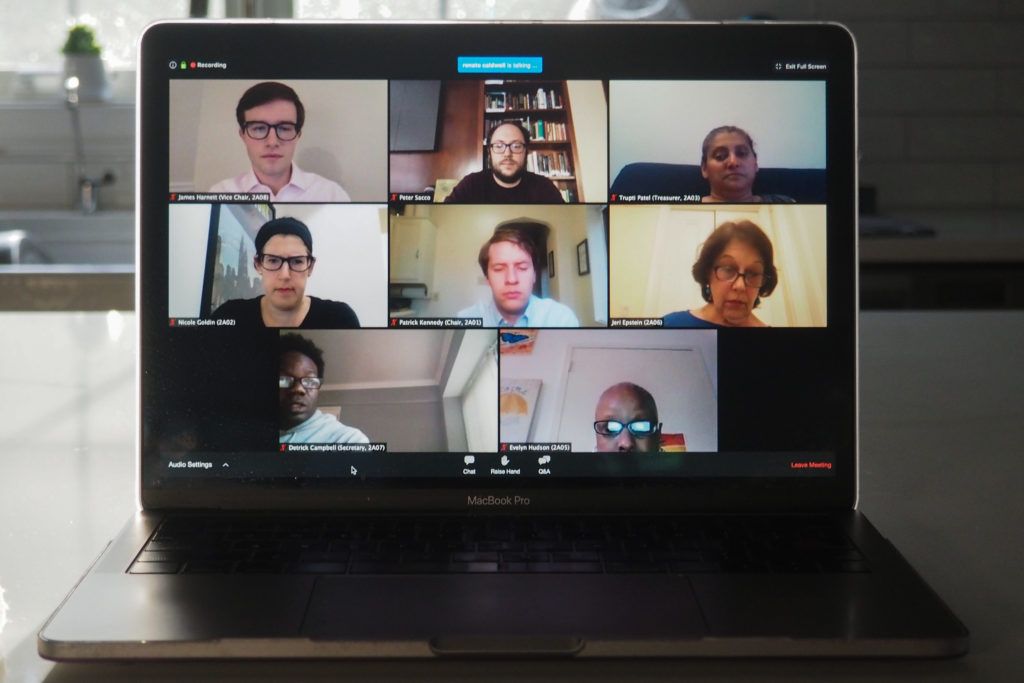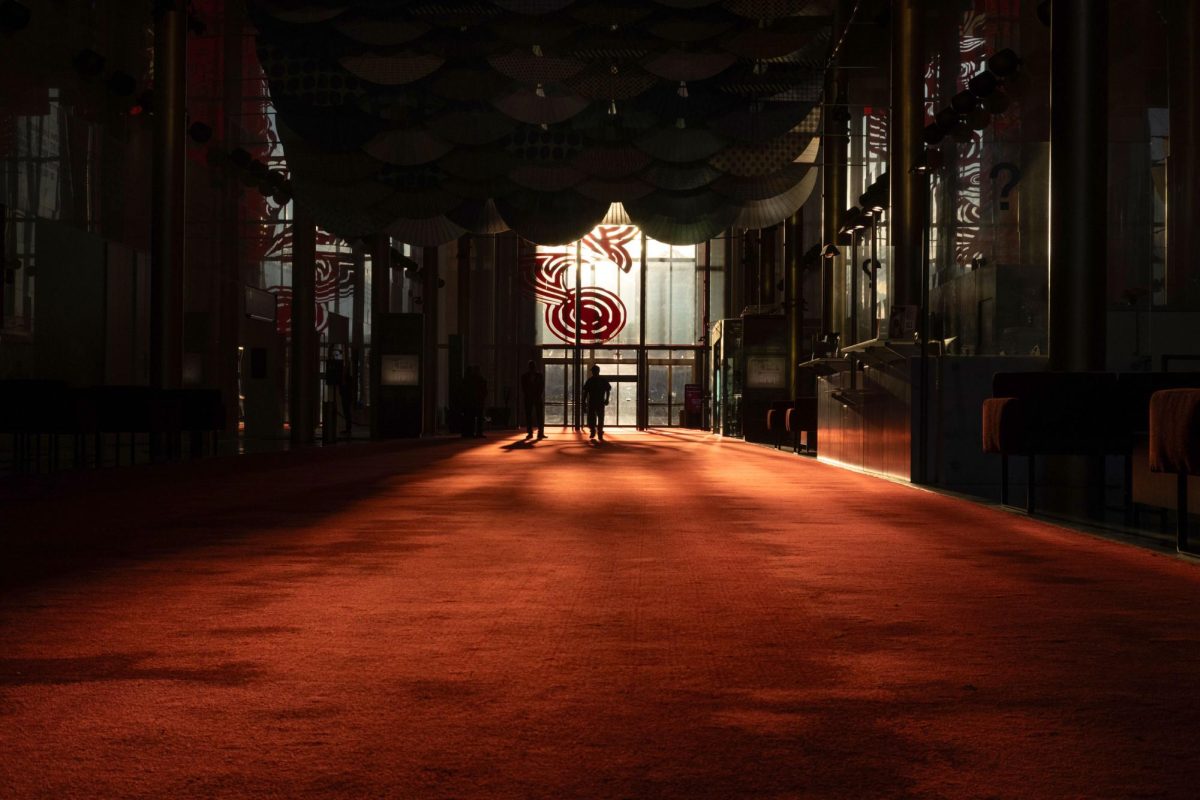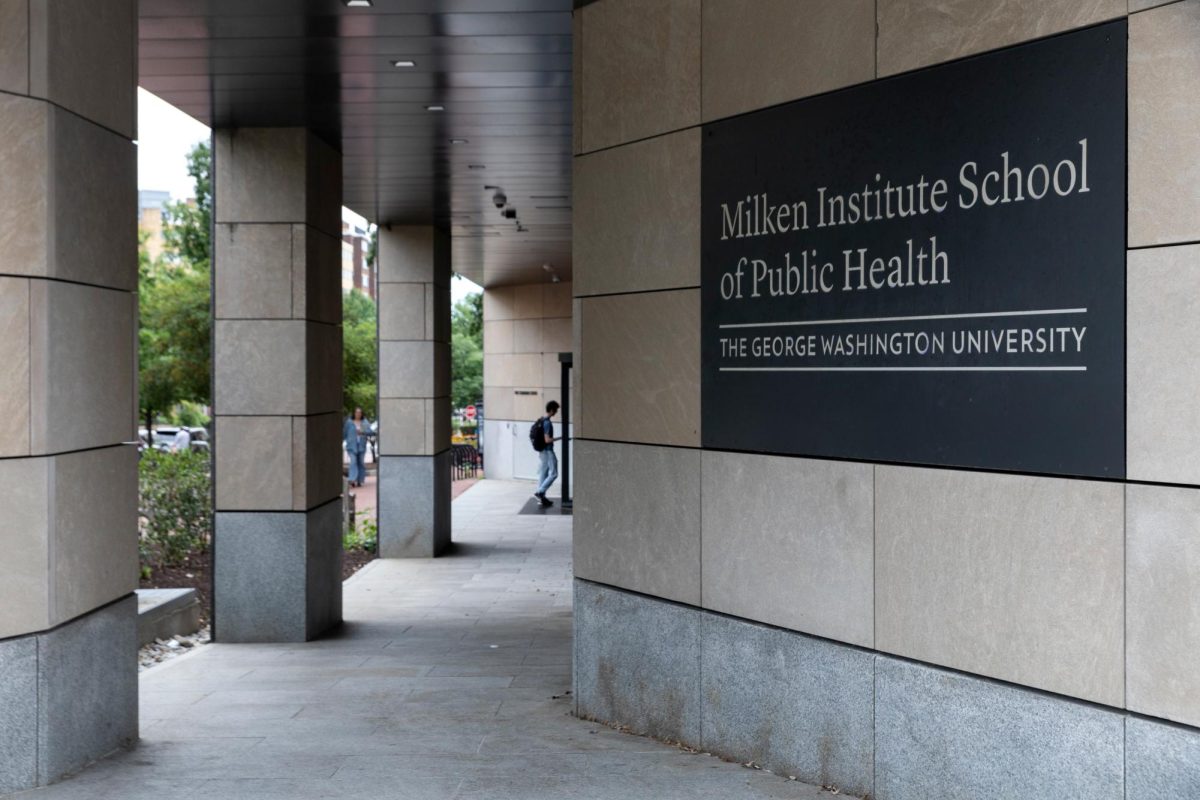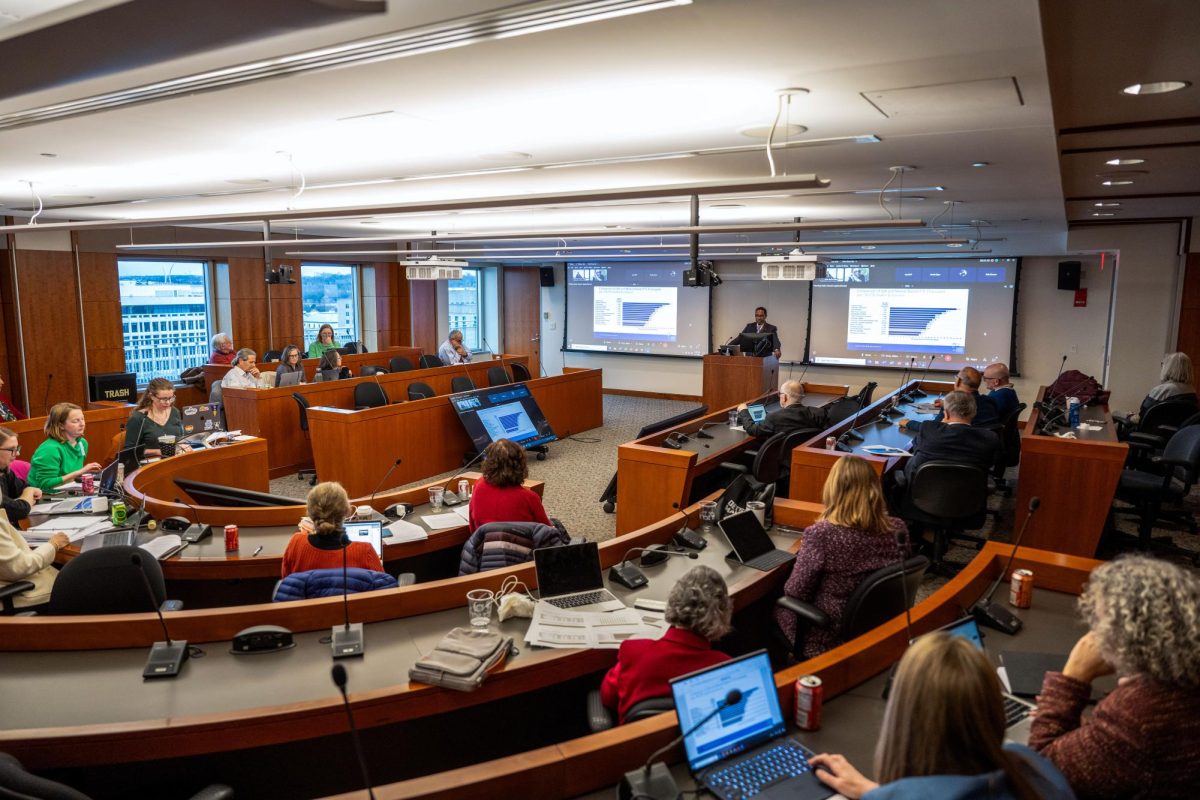A local governing body voted to repair the city’s unemployment insurance system that has left workers empty-handed when applying for financial relief during the pandemic.
The Foggy Bottom and West End Advisory Neighborhood Commission passed a resolution Wednesday to improve the Department of Employment Services’ software that processes the growing number of unemployment claims from laid-off and furloughed workers amid widespread business struggles. Commissioners proposed that a new District Digital Service fixes the technological shortfalls of D.C.’s online portals, preventing problems from occurring during widespread unemployment emergencies in the future.
Here’s highlights from the meeting:
Unemployment insurance system
Commissioner Trupti Patel reported that DOES has not responded to all of its more than 100,000 unemployment insurance claims that laid-off and furloughed workers have applied for during the past eight weeks of widespread financial distress amid the COVID-19 pandemic.
She said DOES only spent $7 million of its $46 million fiscal year 2020 budget allocation, even though there are still local workers waiting up to six weeks to receive their government funding, past the two-week processing turnaround the department pledged.
“I felt that it was appropriate to put in an official resolution to be addressed to the labor committee, the mayor and to the chairman of the council that this is not acceptable,” she said.
Patel said the District could have avoided the issue if the government had improved its online system that processes and distributes funding to local workers and fixed its staffing shortages. The resolution calls for the D.C. Council’s Committee on Labor and Workforce Development to arrange an enhanced portal and assemble a new digital service that can fix current shortfalls, like an “overwhelmed hotline” and long wait times that multiple D.C. government agencies are facing.
“There are still people who’ve filed who still have not gotten their unemployment insurance benefits,” she said. “And just to think that a lot of this, like 90 percent of this, could have been prevented if they modernized the portal as they budgeted for.”
Free parking for D.C. primary
The ANC requested the District Department of Transportation to grant one hour of free parking at in-person voting sites for all Ward 2 residents who are unable to vote through an absentee ballot for the D.C. primary on June 2.
Commissioner Nicole Goldin said the Ward 2 voting centers, located at Hardy Middle School and One Judiciary Square, are inaccessible for pedestrians and public transit commuters, leaving residents who don’t fill out mail-in ballots little choice but to drive to in-person sites.
“We have two centers within Ward 2 that are actually not convenient in terms of walking, walkability to the majority of the residents,” she said.
Rachel Coll, the public information officer on the D.C. Board of Elections, delivered a presentation on voting guidelines, saying the District cut city-wide voting centers from 144 to 20 to discourage in-person voting during the pandemic. Coll and ANC commissioners recommended local voters to apply for mail-in ballots to avoid breaking social distancing and risking infection.
“We are really encouraging voters not to rely on the use of our vote centers but to request their absentee ballot and vote by mail,” she said.
2100 Pennsylvania Avenue construction
The commission approved the extension of an after-hours construction permit for Boston Properties, a real estate investment trust company, to build a new office space at the site of 2100 Pennsylvania Avenue. The resolution allows the company to continue its utility work on I Street from 7 p.m. to 3 a.m. Monday through Saturday until the end of July to complete its work before students return to campus in August, should the University decide to reopen.
Sean Sullivan, the vice president at Boston Properties, said the company paused its unfinished work during its two-month construction permit set in February because D.C. Water, the District’s utility service, discontinued site inspections during the pandemic.
“Unfortunately COVID struck, and D.C. Water stopped doing inspections for our connections, so we tried to do as much as we could,” he said. “Unfortunately without their participation, which is required for every time we make a connection and cover the existing pipes, we were not able to move forward.”
Senior James Harnett, the commission’s vice chair, said the work on I Street should continue in a few weeks when D.C. Water resumes utility inspections. Harnett said he supports accelerating the project’s completion to accommodate the potential arrival of students in nearby residence halls.
“Now that most students aren’t on campus right now, or at least in District House or in Lafayette, I’m happy to see this work getting done before most students return hopefully in the fall,” he said.
The University signed a 75-year contract last July to lease Boston Properties the site at 2100 Penn.







